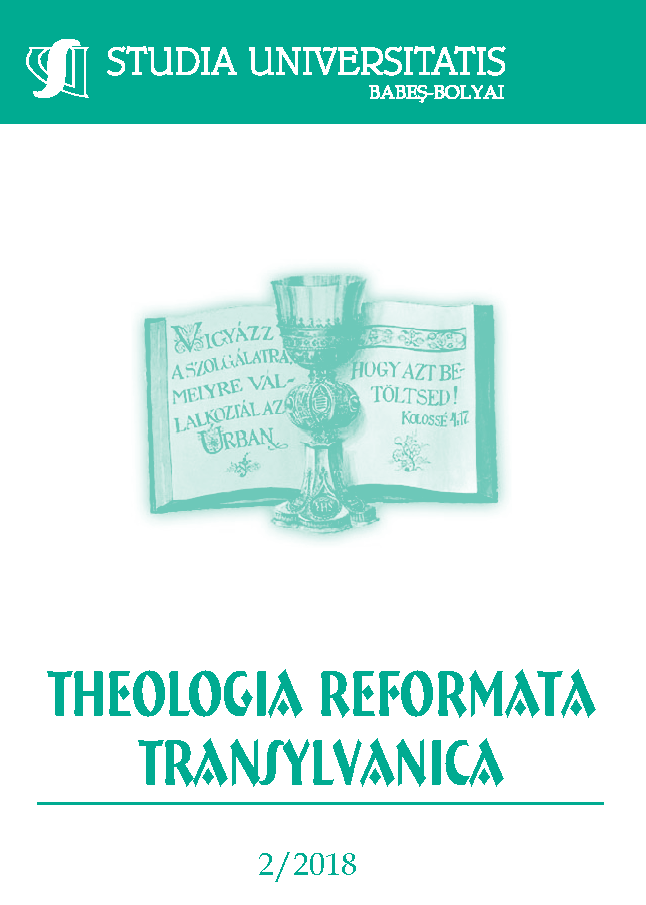Az egység megközelítése az ürességen (önkiüresítésen) keresztül: párbeszédben a kvantumfizikával, a vallásokkal és egymással
DOI:
https://doi.org/10.24193/subbtref.63.2.10Keywords:
emptiness, self-emptying, unity, conditioned mind, objectivity, subjectivity, religion, Christian spirituality, psychology, quantum physics.Abstract
Approaching Unity through Emptiness (Self-emptying): Dialogue between Quantum Physics, Religions and Ourselves.
In the following study, we examine the notion of emptiness, especially its theological and psychological aspects, but we also mention an interesting quantum physics theory in this regard. The purpose of the study is to show the meaning of emptying and related to this the aspiration of self-emptying, which is devaluated to the consumer society, and how important it is in Christian spirituality – in close association with prayer life – and at the same time in life-growth, how it can work on the unity among people, with special regard to the unity between different religious views. This study mentions further thoughts which can encourage philosophical thinking about the relationships, correlations between self-emptying and the viewing, thinking, and expression mods of exceeding the conditioned mind. We will examine that reality is mostly subjective and how important is to know this. We will further examine the definitions of objectivity and subjectivity which are so relative and in accordance with this the existence of an absolute observer is required so that the ultimate truth can be determined (would it be the “evidence of God quantum physics”?) We will also examine if it is possible to solve the paradoxes, how the question of unity and the unbundling of universe was seen by the mystics of the great religions through hundreds or thousands of years, and how far they had exceed by their experiences of their deepened, meditative practices and by their related experiences the opposites of those who were unable to abandon their conditioned mind, and how their teachings seem to be justified by the modern, exact science, the quantum physics which is often mentioned as the Copernican source of classical Newtonian physics nowadays. However, our aim is not to formulate irrefutable truths, but above all, to motivate further thinking, to exceed the traditional, customary ways of thinking, to look for the possibilities to approach each other's understanding – through emptiness.
References
A tudatos jelenlét-alapú kognitív terápia. Perczel Júlia interjúja (Dr. Melanie Fennellel és Dr. Antonia Sumbundu-val). In Psychiatria Hungarica, 2015, 30/1. 100–103.
BAÁN István: Útkeresés Kelet és Nyugat között. https://vigilia.hu/regihonlap/2003/6/baan.htm (2018. 03. 30.)
CHIATTI, Leonardo: Bootstrapping the Quantum Field Theory QFT: A New Road to the Elementary Particles Spectrum. In Electronic Journal of Theoretical Physics, EJTP 9, 2012/27. 33–48.
HAGELIN, John S.: Vajon az egyesített mező lenne a tudat forrása? (Ford. és szerk.: Dienes István) http://strategiakutato.hu/vajon-az-egyesitett-mezo-lenne-a-tudat-forrasa/ (2018. 06. 17)
HÉJJAS István: Buddha és a részecskegyorsító. Édesvíz, Budapest, 2004.
HÉZSER Gábor: Szempontok az imádság pasztorálpszichológiai értelmezéséhez. Kézirat, Debrecen, 2003.
JÁLICS Ferenc: A szemlélődés útja. Korda Kiadó, Kecskemét, 2006.
KEUNE, P. M. – PERCZEL-FORINTOS Dóra: Mindfulness Meditation: A Preliminary Study on Meditation Practice During Everyday Life Activities and its Association with Well-Being. In Psychological Topics, 2010/ 19(2). 373–386.
KRASZNAY Mónika: A misztikus elmélyülés és a szemlélődő imádság helye és jelentősége a keresztény lelki életben és napjaink lelkigondozói-terápiás gyakorlatában – Teológiai, valláslélektani és pasztorálpszichológiai aspektusok. Debreceni Református Hittudományi egyetem, Debrecen, 2014.
KRASZNAY Mónika: Szubjektív realitásunk formálásának és céljaink elérésének új aspektusai: a kvantumfizika, pszichológia és a teológia találkozása. In Studia Universitatis Babeş-Bolyai, Theologia Reformata Transylvanica, 2018, 63/1. 173–191.
KRASZNAY Mónika: Utazás önmagunk középpontja felé – Önismeret és gyógyulás a ’tudatos jelenlét’ módszerével. Rákbetegek Országos Szövetsége kiadványa, 2017.
Mindfulness Tudatos jelenlét (Mindfulness) képzés. http://semmelweis.hu/klinikai-pszichologia/tudomanyos-kutatomunka/kutatasi-teruletek/mindfulness/ (2018. 08. 25.)
NÉMETH Dávid: Hit és nevelés, Valláslélektani szemléletmód a mai valláspedagógiában. Károli Gáspár Egyetem Hittudományi Kara, Budapest, 2002.
PERCZEL-FORINTOS Dóra: Megáll az ész s megáll az idő. In Mindennapi Pszichológia, 2015/6. 37–40.
PERCZEL-FORINTOS Dóra: Tudatos jelenlét (mindfulness) alapú kognitív terápia. Előadás, elhangzott: VIKOTE Konferencia, Budapest, 2017. 04. 21.
PUSKELY Mária: A keresztény szerzetesség történeti fogalomtára. Kairosz Kiadó, Budapest, 2006.
VINCENT, Mark – ARNTZ, William – CHASSE, Betsy: Mi a …(füttyöt) tudunk?! Fedezd fel a végtelen lehetőségeket. Ezvankiadó Kft., (Hely Nincs Jelölve – Krasznay), 2007.
VLACHOS, Hierotheosz: Bevezetés a keleti keresztény lelkiségbe. Zöld-S (vs) Studio, Budapest, 1998.
Szerzetesek a laboratóriumban – A meditáció tudományos vizsgálata. https://www.youtube.com/watch?v=R8S_rAyZwYg
Downloads
Published
How to Cite
Issue
Section
License
Copyright (c) 2018 Studia Universitatis Babeș-Bolyai Theologia Reformata Transylvanica

This work is licensed under a Creative Commons Attribution-NonCommercial-NoDerivatives 4.0 International License.



